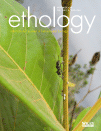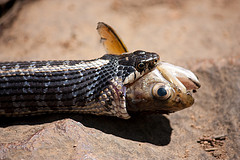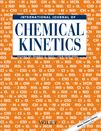 We never cease to be amazed what can make it through peer review and several levels of editing.
We never cease to be amazed what can make it through peer review and several levels of editing.
In this case, some fish mating researchers wrote an, um, love note to their peers that failed to be edited out by any of the many eyes who must have at least glanced over it.
Here’s our favorite passage in “Variation in Melanism and Female Preference in Proximate but Ecologically Distinct Environments” (emphasis ours), published in Ethology:
Continue reading Overly honest references: “Should we cite the crappy Gabor paper here?”








